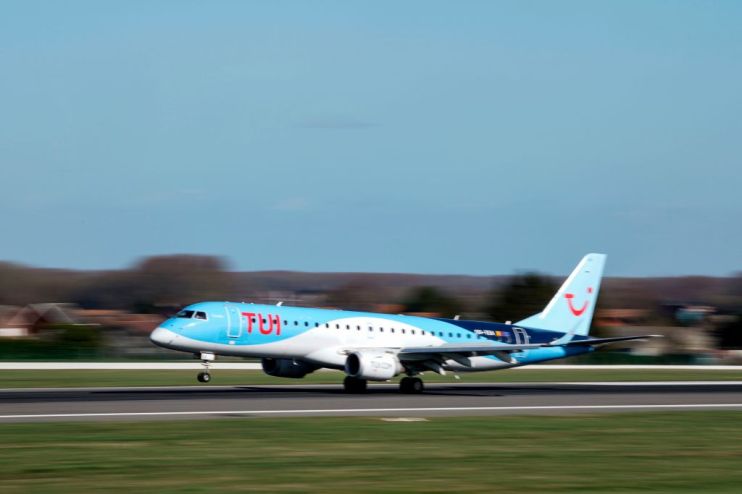TUI rebounds as restrictions ease after heavy pandemic losses

TUI has enjoyed a strong revival in its fortunes this summer, but the darkening clouds of the Omicron variant could yet scupper its recovery next year.
The German travel giant unveiled deeply encouraging fourth quarter results as leisure travel returned across the continent returned as pandemic restriction eased.
Nevertheless, the company suffered heavy losses across all parts of its business during the first three quarters of its full-year results –1 October 2020 to 30 June 2021.
Tourism has since powered its earnings, which reached €3.4bn – up €2.1bn – during the three-month window from July to September compared to its fourth quarter in 2020.
Shares are up 1.93 per cent on the London Stock Exchange’s main market following the cheery developments.
Despite the recent improved performance, every sector still remains in the red including hotels, amusements and cruises.
Airline losses are particularly high at €1.47bn – even if this is around a 25 per cent reduction on last year’s losses of over €2bn.
Meanwhile, group losses have been cut by 21 per cent, but also remain significant – totalling €2.48bn.
Nevertheless, the firm’s strong fourth quarter performance does offer signs of positivity for TUI next year, with an encouraging pipeline of 4.1m bookings across this winter and next summer, with 1.4m bookings added since 3 October.
Richard Finch, analyst at Edison Group, argued the fourth quarter results were “encouraging” but that the “concerning rise in the Omicron variant threatens to hinder” the company’s momentum.
The analyst also noted booking still remains well below pre-pandemic levels.
Finch said: “Winter 21/22 bookings are currently only at 62 per cent of winter 18/19 levels, and the outlook for the wider travel is once again looking increasingly uncertain as global governments take steps to prevent the spread.”
The announcement comes as the UK looks set to enter ‘Plan B’ restrictions which could include work-from-home orders, travel restrictions and vaccine passports.
With European economies such as Austria, Netherlands and Czech Republic already reintroducing social distancing measures to reduce Delta cases – it is highly plausible that the reportedly more contagious Omicron variant could result in more restrictive measures.